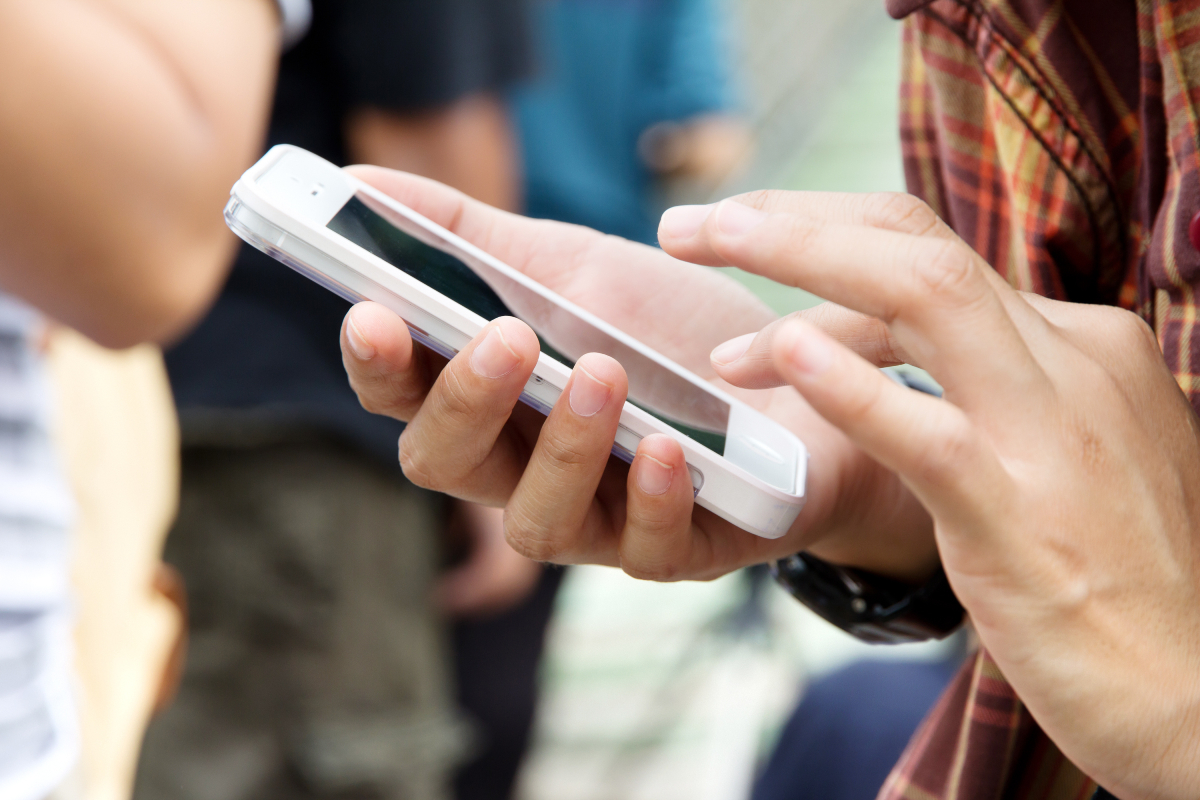Stop Mobile Babysitters Now! The cry of distress is being raised by experts and educators at an international level, who are finding more and more in their research that something is going terribly… wrong in the development of adolescents in modern societies.
Mobile phones, small screens of “smart” devices, constantly changing images, constantly changing fast (and often stressful) emotions, lack of supervision, lack of boundaries. An environment in which our children grow up today and which scientists in Greece and abroad characterize as “hostile to human development and civilization”…
Worrying facts
What does the above mean? Rates of depression and anxiety in the United States – fairly stable in the 2000s – increased by more than 50% from 2010 to 2019. The suicide rate increased by 48% for teenagers aged 10 to 19. For girls aged 10 to 14 it increased by 131%. The problem is not limited to the US. Similar patterns emerged around the same time in Canada, the United Kingdom, Australia, New Zealand, the Nordic countries, and the rest of Europe.
According to some estimates, more than 14 million young men and women aged 15-29 in EU countries experienced a mental health problem in 2019. A recent UNICEF report states that suicide is the second most common cause of death among young people in Europe, after road accidents. In short, members of Generation Z (born 1996 and later) suffer from anxiety, depression, self-harm and related disorders at levels higher than any other generation for which we have data.
“For most of us today, parenting teenagers is like watching our kids use drugs in our living room and not doing anything because everyone else is doing it.”
Social life on the Internet
Looking for the causes of this phenomenon, many experts conclude that the last two decades are the years when teenagers in developed countries started using “smart” mobile phones and transferred a significant part of their social life to the Internet, especially on social media platforms. networking.
Since young people started carrying the entire Internet in their pocket and accessing it day and night, their daily experiences and development path have changed in all areas. Friendships, dating, sexuality, exercise, sleep, academic studies, politics, family dynamics, identity, all were affected – and of course this new reality had direct effects on their mental health.
90% of Greek children aged 5-12 visit the Internet, while 97% of children aged 10+ are fans of the Internet according to the Focus on Tech Life tips survey (March – June 2023)
Anxiety, depression, low self-esteem
The transition from use to abuse and the effects on young people’s psychological health was a matter of time. As characteristically stated by Mr. Gerasimos A. Kolaitisprofessor emeritus of the School of Child Psychiatry Medicine at the University of Athens, “an important finding from our own recent study (2-3/2023), in which about 6,000 students aged 12-16 from 51 high schools from the Prefectures of Attica, Thessaloniki, Ilia, Karditsa, Kefallinia and Cyclades participated, is that 43% of Greek adolescent high school students overuse electronic devices and they have higher affective burden and behaviors”.
And he adds: “Many studies show that problematic use of social media by minors (i.e. that which affects life satisfaction, mental health, school, relationships with family and peers and possibly involves symptoms of addiction) is associated with lower well-being in all of the above areas, more symptoms of anxiety and depression, low self-esteem and pathological eating issues».
The Lady Katerina Lykoudi, mother of a teenager, characteristically notes: “I would use an acute way to describe the phenomenon by saying that for most of us parents of teenagers today it’s like watching our kids use drugs in our living room and not doing anything because everyone else is just doing it. If I could, I’d really like to see cell phones and small and handy “smart” screens out of the hands of young people. The phenomenon is now extremely dangerous. Teenagers don’t live with us anymore. They live entirely in a digital world, often hiding their personality or appearance, playing roles, roaming digital streets without control or rules and certainly without any safety net to absorb their side effects. They don’t read anymore, they barely bother with their textbooks. I don’t really know what the solution is to this problem, which I think is international».
185 minutes is the average daily Internet connection time from a mobile phone in Greece (according to Focus on Tech Life tips) for ages 16-24
“They lack time to think”
For her part, the child psychiatrist Mrs Savvina Mylonas underlines that “the way of socialization and in general the psychopathology of children has completely changed. Social media and the Internet dominate the daily life of young people, as well as adults. What I would say that teenagers mostly lack is time: time to think, time with themselves. The fact is that more children are visiting the child psychiatrist and undergoing psychotherapy. What we can say for sure is that in recent years we have seen a clear increase in depression and anxiety in children and teenagers. There has also been a great increase in acts such as self-harm. We are still seeing an increase in suicide attempts» notes Mrs. Savvina Mylona.
Experts also point out that the biggest cost of the new reality is the collapse of the time children spend interacting with other people, face-to-face. It is worth noting that recently there has been an increasing number of reports on suicides and suicide attempts by people aged 15 to 19 in our country, while there is almost no mention of self-harm or self-destructive behaviors. In addition, there is a noticeable increase in calls received by the Suicide Prevention Center on the Suicide Intervention Line – 1018 from young people with requests or reports related to suicidal ideation or self-destructive behaviors.
84% of young people in the EU use the Internet for social media according to the European Statistical Office
“They don’t talk, they just…scroll”
“You want to… scroll me too?” asked a teacher of the Vocational High School in the center of Athens recently. As she says, all the students today have their mobile phones in their schools (even though it is forbidden) and in fact many times they secretly look at their screens during class.
“The kids don’t talk to each other anymore,” typically says, “they just… scroll. Unable to express themselves, they often even participate in online gambling communities or dress carefully every day just to be photographed and upload their photos to social networks”.
“They have no sense of their dependence”
Sociologist Mrs. Anastasia Vlachogeorgakis. As he points out. “more families resort to us, as the students themselves have no sense of their dependence. The incidents we deal with are increasing over the years, but the increase is not commensurate with the problem – which is very large. One reason is that many (young and old) abuse the screen, so this seems normal to us these days. One factor that motivates parents is when they see school performance drop».
“The frequent use of mobile phones as a means of communication contributes to insufficient emotional and social development of young people” says about Yannis Katradesprincipal at the 1st Geraka High School. “This appears to affect the student’s ability to communicate with others and control themselves. Inside the classroom they have their attention on the cell phone, which they have activated, for any messages they will receive or send, so they lose contact with the learning process.”
According to some researchers, the results of the international assessment program PISA, which the OECD conducts every three years in its countries for high school students, are also affected by the excessive use of mobile phones by students. Indeed, in the introductory text of the latest evaluation (2022) it is noted that: “Technology used for recreation rather than training, such as cell phones, often appears to be associated with poor outcomes. For example, students who reported being distracted by other students’ electronic devices scored at least 15 points lower than those who reported not being distracted».
#Teenagers #live #phones #parents #experts


